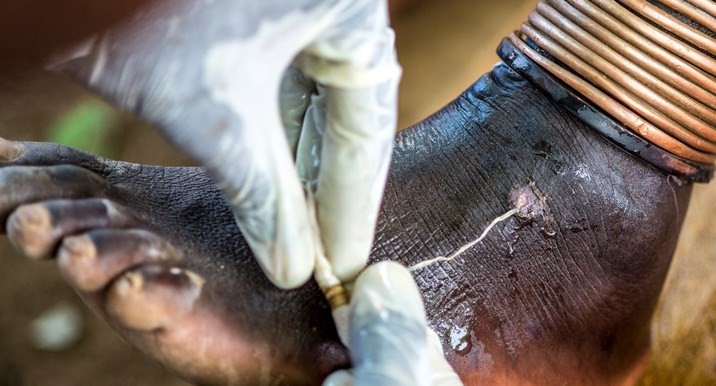Health authorities in Duk County in Jonglei State have reported about 14 cases of Guinea worm disease in parts of the county since last week.
Speaking to Radio Tamazuj on Thursday, Peter Mathiang, the Duk County health director, said the cases were reported among the floods-displaced community living along the Jonglei Canal embankment in the county’s Duk Padiet area since last week.
“As of this morning, there are 14 cases of the disease. They are all women, except for an old man in his 60s. Three cases are from Ayueldit village, and the rest from Dorok village,” Mathiang said.
He added, “As health professionals, we were able to confirm that these cases are of Guinea worm disease because of clinical manifestations. In some patients, the worm protruded through arms and legs. There is nothing we are doing but just providing supportive care.”
Mathiang pointed out that the disease poses a threat to public health and called on the government and its partners to intervene before the situation worsens.
For his part, Elijah Manyok Ayiei, the Duk County executive director, also decried the health situation there and said 5,000 households living along the embankment are likely to get infected as access to clean drinking water remains a challenge.
“More than 5,000 families are living along the embankment of Jonglei Canal in Ayueldit and Dorok villages. They rely on the Canal waters for domestic use. The risk of spread is very high because we are unable to isolate the sick," he said.
Guinea worm disease(GWD), also known scientifically as Dracunculiasis, is an infection caused by the parasite Dracunculus medinensis and is clinically distinguishable by fever, diarrhea, itchy pains, swelling, and blisters at the site where the worm emerges.
The parasitic disease can be controlled by having access to clean drinking water and isolating those infected from water sources.
Until 2018, South Sudan has only registered three GWD cases, a marked decrease from 20,581 cases over a decade earlier.




